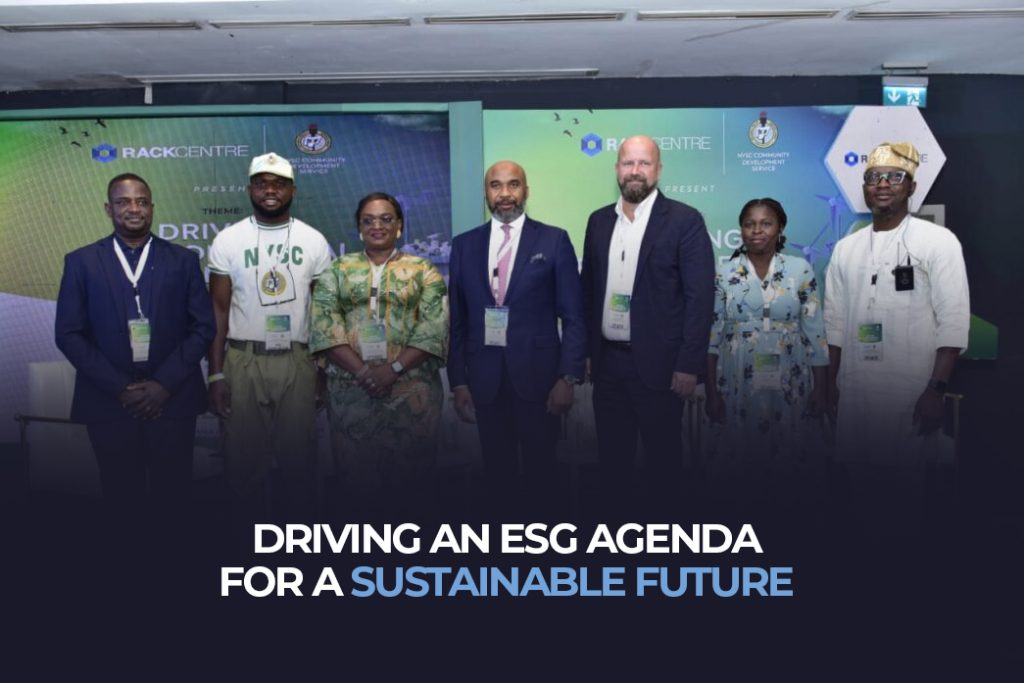Sustainability has become a hot topic across industries, and the data centre sector is no exception. At Rack Centre, we are not just talking about sustainability in Nigeria, we are leading the conversation. As the first IFC Edge certified data centre in Europe, the Middle East, and Africa (EMEA), we are proud to set an example of sustainable practices in our operations.
We are already looking ahead, bringing stakeholders up to speed on the importance of sustainability in helping Africa secure a low-carbon data future. With the growing demand for digital infrastructure across the continent, it’s crucial to ensure that this development aligns with sustainable practices.
In line with our commitment to Environmental, Social, and Governance (ESG) principles, Rack Centre sponsored a Waste-to-Energy Summit. The goal was to shed light on the untapped potential of the Olusosun Landfill, Nigeria’s largest dumpsite. Located in Lagos and spanning 42.7 acres, Olusosun receives up to 30,000 tons of waste daily. The summit aimed to bring attention to innovative ways of converting this waste into energy, addressing the environmental challenges posed by landfills like Olusosun.
A significant part of the summit was the involvement of young Nigerian graduates from the NYSC program, who showed their passion for building a sustainable future. This commitment from the younger generation is inspiring and essential for driving real change.
Dr. Muyiwa Gbadegesin, who represented the Lagos State Commissioner for Environment and Water Resources, highlighted the pressing need to address waste management, especially given its impact on pollution and climate change.
Lars Johannisson, CEO of Rack Centre, set the tone for the discussion, stating, “Sustainability starts from the design of the facility and how operations are engineered to reduce environmental impact.” This philosophy is embodied in the ongoing construction of our Lagos Data Centre Campus 2. As the first green building of its kind in the EMEA region, this facility will have a 12-megawatt IT power capacity and is designed to save 35% more energy than comparable facilities in Africa, reduce water usage by 41%, and lower embodied energy by 45%.
Our sustainability efforts extend beyond our facilities to the very materials we use. Through our ‘Africa First’ and ‘Build for Today, Ready for Tomorrow’ strategies, we prioritize sourcing materials locally within Nigeria and Africa. This approach not only supports local economies but also reduces carbon emissions by cutting down on long-distance transportation.
Looking ahead, one of our key sustainability goals by 2025 is to work closely with partners to enhance our energy mix. While we currently rely on gas, we are committed to incorporating more renewable energy sources into our infrastructure.
During the summit, Dr. Muyiwa Gbadegesin spoke about the potential of sourcing energy from Olusosun Landfill. The site, which has long been a source of pollution, can become part of the solution with plans to harness methane gas for energy. This is part of Lagos Waste Management Authority’s (LAWMA) broader sustainability agenda, which includes developing composting sites and biogas production plants, and working with waste-to-energy companies to turn waste into power.
At Rack Centre, we believe the future is here, and we are committed to driving sustainability and innovation in the data centre industry. Our focus on ESG principles and renewable energy sets a benchmark for businesses in all sectors, showing that it’s possible to turn challenges into opportunities and reduce carbon footprints along the way.



Thanks alot,
I’m really looking forward to working with this great establishment as my case study for my final year project .